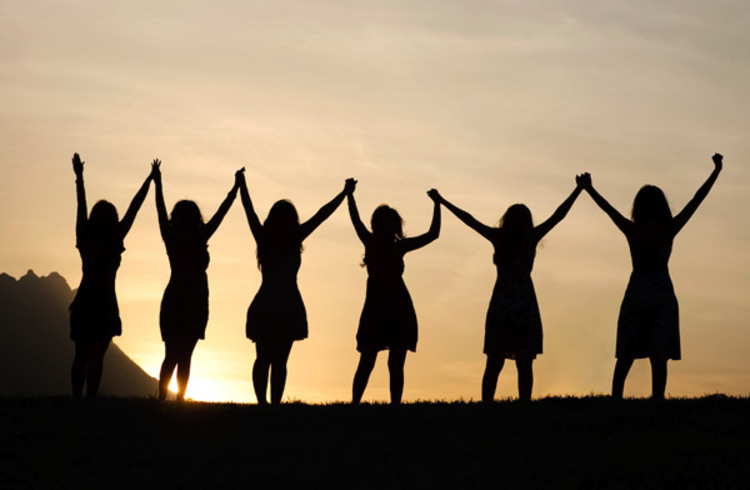Let us all decide!

Sofia Calltorp Special Correspondent
“Today . . . the person more qualified to lead is not the physically stronger person. It is the more intelligent, the more knowledgeable, the more creative, more innovative . . . a man is as likely as a woman to be intelligent, innovative, creative. We have evolved. But our ideas of gender have not evolved very much” — Chimamanda Ngozi Adichie. As newly accredited Ambassador to Zimbabwe, as a women and a mother, today on International Women’s Day, I want to take the opportunity to highlight the importance of gender equality and women’s right to steer their own life.
It is the duty and responsibility of us all to help pave way for women’s equal rights. Not only is it a moral obligation, it will also lay the foundation for a healthier and more prosperous society.
Globally, the situation for women, girls and adolescents has improved.
A hundred years ago women could not vote, far less run for office. Since the early 1990s, the world has seen a nearly 50 percent decline in maternal death ratio — a remarkable achievement.
But progress has been slow and uneven. One woman or girl still dies every two minutes of causes related to pregnancy or childbirth.
We are constantly reminded in our everyday life that much still has to be achieved, since countless women and girls still experience a blatant lack of Rights, Representation and Resources — the three “Rs”.
Sweden’s Feminist government
Sweden is proud to have the world’s first and, to date, only feminist government, consisting of 12 women and 12 men. Our feminist policy clearly states that all human beings are born equal — and that everyone should have equal opportunities, equal access to resources and equal influence at all levels of society.
The influence and control over one’s own life is a fundamental human right, therefore applicable to both women and men. The Swedish feminist policy is based upon a strong understanding and active engagement by all members of society, also men and boys. All of us acknowledge the need for — and positive outcomes of — equal opportunities.
Gender equality is for us a goal in itself. It is also a fundamental means to the achievement of the Government’s other overall objectives, such as peace, security and sustainable development.
She Decides
Last week, Sweden co-hosted the High Level International Conference ’She Decides’ in Brussels, the European Union’s unofficial capital. The conference, jointly organised by Sweden, Denmark, Belgium and the Netherlands was organised to increase the support to women’s sexual health rights and family planning worldwide.
Underlying it all is the belief that women have a very apparent right to decide over their own bodies.
“We will mobilise political and financial support and show that there is a counterweight to the worrying developments we are seeing in the world,” said Sweden’s Minister for International Development Cooperation and Climate, Ms Isabella Lövin.
“She Decides” not only aimed to mobilise financial support for women’s sexual health rights — it also aimed to contribute to strengthened global partnerships for gender equality and gender-based rights.
The event gathered representatives from governments, UN agencies, non-governmental organisations, foundations and private companies sharing a strong engagement for women’s rights.
At the conference, women from different parts of the world testified about the importance of these rights for their own health, socio-economic situation and personal development, as well as to the positive impact on entire communities in terms of harmonious and peaceful growth.
Sweden and Gender in Zimbabwe
Swedish Embassies abroad continue to be a strong advocate and driving force for human rights and gender equality. Last year, the Constitutional Court of Zimbabwe declared child marriages unconstitutional. In 2017, we want to work together to capitalise on this landmark decision.
If given the right follow-up, this decision will have a positive impact on many young girls’ physical and psychological well-being as well as their life choices. Empowering young women is not only a moral obligation, it will also lay the foundation for a more healthy and prosperous society.
In this spirit, Sweden supports a wide range of initiatives that provide girls and young women with opportunities to complete their education; and with alternatives to early marriage and a mere subsistence economy, through better understanding of livelihood diversification and employment opportunities.
Sweden also believes in the United Nations Development System’s capacity to tackle global development challenges. Sweden, with its 10 million inhabitants, is the sixth largest donor to the system, globally, through funding to specialised UN Agencies.
In support of women and children’s health, globally, Sweden remains the leading donor of core support and the second largest overall contributor to the United Nations Population Fund (UNFPA).
Sweden will continue to prioritise flexible funding and will raise its core contribution to UNFPA in 2017 to approximately USD 61 million.
In Zimbabwe, Sweden works with UNFPA to end gender-based violence and improve access for all girls and women to sexual and reproductive health and rights (SRHR), as well as prevention of HIV and other sexually transmitted infections.
Together with the UNICEF.
the Embassy works to strengthen national strategies and policies on child protection and social protection for the most vulnerable.
Today on International Women’s Day,
let’s all partner up to make sure that,
She Decides.
Calltorp is the Ambassador of Sweden to Zimbabwe.










Comments